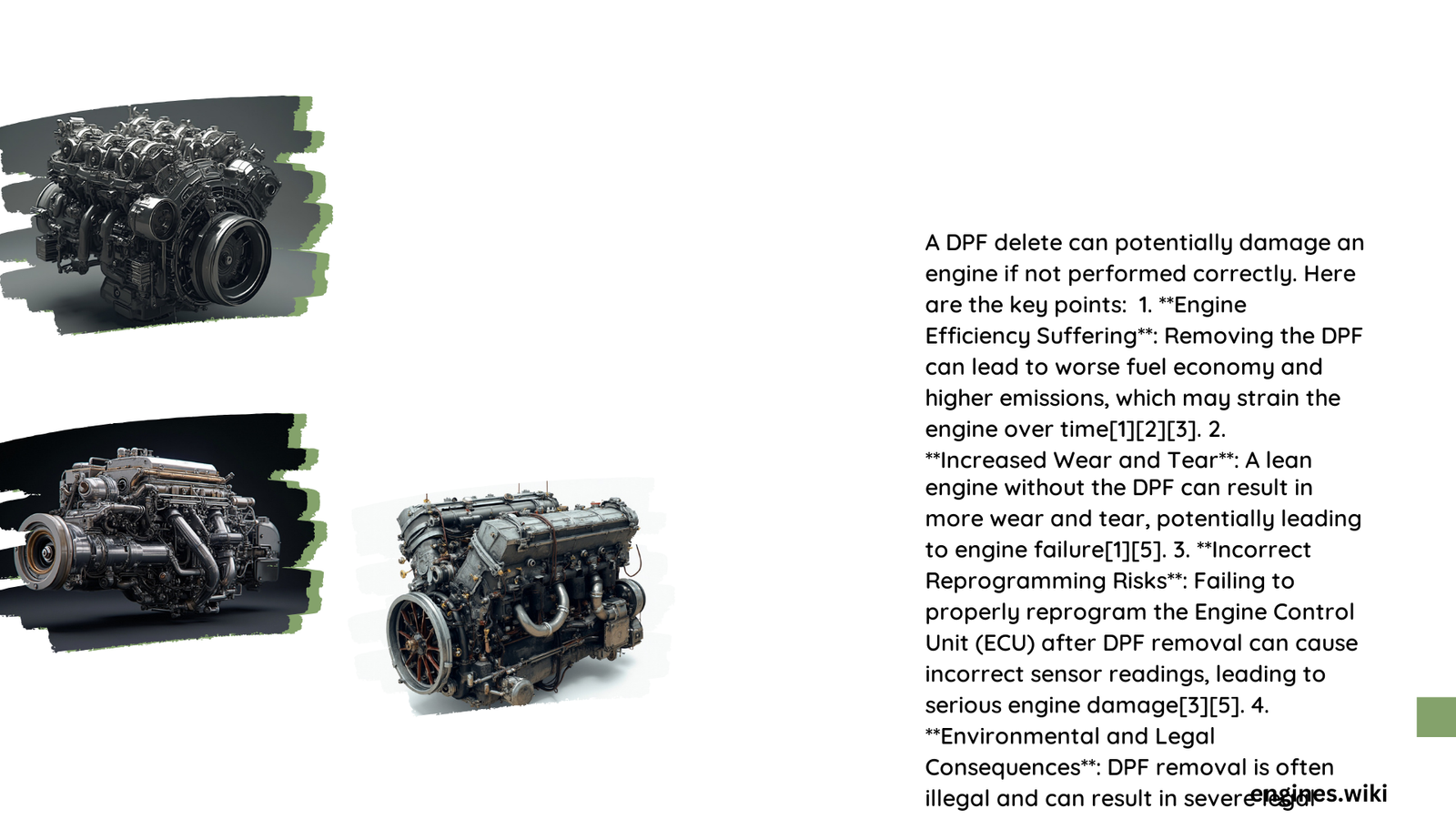Diesel Particulate Filter (DPF) deletion is a controversial modification that can potentially compromise engine integrity, performance, and long-term reliability. Vehicle owners contemplating this procedure must understand the complex mechanical and chemical processes that could lead to significant engine damage, increased wear, and potential legal repercussions. The decision to remove a DPF involves intricate trade-offs between perceived performance gains and substantial risks to engine health.
What Happens to Engine Mechanics During DPF Delete?
How Does Exhaust System Change?
When a DPF is removed, the exhaust system experiences dramatic transformations:
- Reduced Backpressure: Exhaust gases flow more freely
- Increased Gas Velocity: Faster exhaust gas expulsion
- Altered Exhaust Temperature: Potential thermal management challenges
| Mechanical Impact | Potential Consequence |
|---|---|
| Reduced Filtration | Higher Particulate Emissions |
| Less Exhaust Restriction | Potential Performance Increase |
| Changed Gas Dynamics | Increased Engine Wear |
Can Removal Cause Immediate Engine Stress?
Immediate engine stress can manifest through:
- Increased friction in engine components
- Altered combustion chamber dynamics
- Compromised emission control mechanisms
What Chemical Processes Occur After DPF Delete?

How Do Emissions Change?
Chemical composition of exhaust dramatically transforms:
- Particulate Matter: Unfiltered release
- Nitrogen Oxide (NOx): Increased concentration
- Soot Particles: Direct atmospheric discharge
What Performance Metrics Shift?
Performance modifications include:
- Marginal horsepower increase (2-5%)
- Potential torque enhancement
- Slight fuel efficiency improvements
What Legal Risks Exist?
Are There Regulatory Consequences?
Critical legal considerations:
- EPA violations
- Potential fines up to $45,000
- Voided vehicle warranty
- Potential insurance cancellation
How Does Long-Term Engine Health Deteriorate?
What Mechanical Wear Occurs?
Potential long-term damage includes:
- Accelerated piston ring wear
- Increased cylinder wall scoring
- Premature turbocharger degradation
- Compromised lubrication systems
What Are Alternative Solutions?
How Can Engine Performance Be Improved Safely?
Recommended alternatives:
– Professional DPF cleaning
– ECU remapping
– High-quality diesel additives
– Regular maintenance
Conclusion
While DPF deletion might offer temporary performance gains, the potential for extensive engine damage far outweighs these marginal benefits. Vehicle owners should prioritize professional maintenance and legal modifications.
Technical Recommendations
- Consult certified diesel mechanics
- Use manufacturer-approved performance upgrades
- Maintain regular service intervals
- Monitor engine diagnostics closely
Reference:
– EPA Diesel Emissions Regulations
– Diesel Performance Guidelines
– Vehicle Emissions Standards
